If you are starting to feel naked without your shovel, consider the plight of the Maine farmer this February, with snowbanks so high that they have to worry about their livestock walking right out of (or rather right over) the pen or corral.
Then there is the cold. It’s been weeks since the temperature went above freezing. Ten degrees is starting to seem balmy. In Sumner, farmers Marty Elkin and Mary Ann Haxton took such pity on a pregnant ewe who went into labor right after Blizzard No. 1 that they brought the mother and newborn twins into the house.
The roof of a barn at a horse breeding farm in Berwick collapsed during the blizzard last weekend, whether because of the wicked wind or the weight of the snow, owner Sandra Hall isn’t sure. She moved her six horses – unhurt – to a relative’s barn in Dover but she can’t get to her hay safely; it is trapped under the collapsed section of the roof. “Thank God I moved my tractor,” Hall said.
At Winter Hill Farm in Freeport, Steve Burger is grateful every day for the new addition to the farm, an 8-foot plow blade affixed to a tractor. Without it, no customers could get in to pick up fresh milk. And the cows, who like to stand outside on their concrete pad during the day, would be consigned to the barn. Which by the way, is the site of Burger’s worst winter-weather-related anxiety, the gutter scraper. That’s a sort of conveyor belt that moves fresh manure out of the dairy barn and if it freezes on one of these brutally cold days, it will fall to Burger to get it moving again, manually. “There is nothing fun about chopping away at frozen manure,” Burger said.
Everybody with four legs, from the pigs to the sheep, pregnant or otherwise, is hungrier; calories burn up faster when the temperatures drop. Just getting the food to livestock can be an ordeal when the snow is over waist high and the tractor reaches the point of no return. That’s what happened to Steve Collins of Belgian Meadows Farm in Lebanon the other day. Ninety minutes to deliver a round bale of hay to some cows.
“The wintertime sucks,” Collins said. “Just to do anything is twice the work. But you can’t just stop.”
He’s been farming 25 years, but acknowledges that the winter of 2014-2015 is a particularly tough one, mostly because of the timing, the storm after storm. “This has all come within one month,” Collins said. “That’s why everyone is dying.”
Well, not literally. But they are noting how wretched it is. “It’s a lot more shoveling,” said Anna Spiller of Spiller Farm in Wells. “That’s about the gist of it. That and sputtering about how much we have.”
It’s hard to get a farmer to complain on the record. Most of them just laughed when they picked up the phone and heard a reporter asking how it was going with all that snow. The people with decades of experience farming, like the Spillers, say they can remember maybe one or two winters this epic, in terms of snowfall. The younger farmers say they’ve never seen anything like it.
“We’ve only been farming here in Maine for five years,” Burger said. “And this is the most snow that I’ve had to deal with. It’s one of the challenges and I learn something new every day.” Like? “I have gotten really efficient at moving snow,” he said.
Winter Hill is best known for its cheese, made by Burger’s wife and farming partner Sarah Wiederkehr. Even the cheese is feeling the impact. The blooming rind cheeses typically sit out for 24 to 36 hours in the drying room to form that bloom before they start the aging process. “They aren’t blooming,” Burger said. “It’s not warm enough.”
Each successive storm presents a new challenge. The chickens at Winter Hill aren’t going anywhere, but the snow drifts are encroaching on their hoop house. “You worry about whether they might collapse,” Burger said.
Downeast in Edmunds, Tide Mill Farm has recently expanded its operation with a new (almost finished) chicken-processing plant. Generally, the Bell family orders its chicks for delivery through the U.S. Postal Service. But at these temperatures, no chickens are going to make it through the mail. So Carly DelSignore and a friend recently got in the van and drove to New Jersey to collect 1,000 chickens. They got lucky in one respect; their 28-hour round trip drive took place between storms.
DERAILED SLEIGH RIDES
By this Thursday, the season’s snowfall in Portland was up to 83.1 inches (normal accumulation is 42.2 inches) and more snow has fallen in other parts of Maine. All that snow sounds like it should be a boon to any kind of recreation or agri-tourism that involves snow and farms, but not necessarily. Take the Harris Farm in Dayton, where 25 miles of groomed cross-country trails curve over hill and dale. Yes, there’s plenty of snow. But who wants to cross-country ski when the wind chill factor dips into negative numbers?
“We need the good weather to get people out,” said Dixie Harris. Just one weekend with beautiful sunshine could make all the difference. She and her husband started the cross-country ski operation on the dairy farm 26 years ago, partly as a means to fund their retirement so they could pass on the rest of the farm operations to their sons. Those $15 a day tickets are crucial to their income.
Kathy Ossinger of Spiritwind Farm in Lebanon usually relies on some winter income from sleigh rides with her two English Shire horses, Abby and Lucy. These horses, both 18 hands tall, are so game that they even spent part of the January blizzard outside. They grow a good winter coat and don’t mind even “when they have pile of snow on their backs,” Ossinger said. But the snowfall of the last few weeks has placed limitations on even the English Shires. The sleigh isn’t going anywhere. “It is too deep for them,” Ossinger said. “If they get stuck, it is not easy for them to turn around.”
Collins, whose Belgian Meadows Farm is nearby, faces similar challenges. Over the Valentine’s Day weekend he had several bookings, including a family of 20 and a man planning to pop the question to his girlfriend after a romantic sleigh ride. Collins has Belgian horses and they’re tough. But when their legs sink deep into the snow, they’re not happy. So he’s been plowing a trail for them. “It took me two hours to plow about 150 feet,” he said. “It was hard as cement, but I had to at least clean that up. You’ve got to give them a chance.”
“When you get lemons, you make lemonade,” Collins said.
You look on the bright side. You do as Dixie Harris does when some piece of equipment won’t start on a cold morning. Just “put on more clothes and go out and take care of it,” Harris said. You welcome the neighbors, and strangers, who help you look for missing animals (that’s what happened in Wells when a pair of horses scaled the snowbanks and went missing in the second blizzard).
But sometimes, there are just so many lemons to contend with.
Sandra Hall had been on a waiting list to get her barn roof cleared by busy roofers and in the meantime had done her best. “We tried with those roof rakes as high as we could,” Hall said. After the collapse, she got some help, but still has a lot of snow to move. “Then I woke up with that stomach flu,” Hall said. “This winter has just been so brutal.”
SNOWBABIES
At least, new life is starting to arrive. At a Wrinkle in Thyme farm in Sumner, which produces wool (as well as maple syrup), 13 ewes are pregnant. One unexpectedly gave birth to two lambs not long before midnight on a night when it was 20 degrees below zero. “They were so, so, so cold,” said farmer Marty Elkin. She brought the new lambs, Ebony and Elsa, and their mother, into the house to warm up. But there is a limit to how long anyone wants to have sheep in the house, even cute ones and even in the bathroom.
“In desperation, we butchered a sweater,” Elkin said. She and her wife, Haxton, cut the sleeves off an old sweater from Goodwill (all wool, naturally) and cut holes for the lamb’s legs. Elkin is busy getting more sweaters ready for the next arrivals, but she hopes they wait until March. And she’s going upscale. “I found a pattern for a dog sweater, and I’m in the process of adapting that.”
Not that Elsa and Ebony or their ilk are expressing any great interest in the great outdoors. At Pondview Farm in Limington, Sue Faunce leaves the barn door open for her ewes, but they decline the invitation. “They stay in a lot.” Fifteen of them are expecting, and they prefer boredom in the barn to the outdoors.
The boys, however, stay outside. Faunce’s nine rams are in a two-sided shelter, and they’ve required some assistance getting to their food. “The funny thing was, when that blizzard was over, they were looking at these big snow banks,” she said. Once a path was shoveled to their food, the rams followed her right down the path, single file and intent on their destination.
THE COWS WIN
The consensus seems to be that on most farms, the cows cope with winter the best.
Faunce’s beef cattle have no shelter at all, but they’ve picked themselves an area with some tree cover. “They will just wait it out,” Faunce said. “They seem to not really mind it at all.” Even, she said, when they have icicles hanging off them.
Anna and Bill Spiller have three new calves, born in the weeks or days just before the January blizzard. “It was such a horrible couple of days that we were concerned,” Anna Spiller said. But they were fine, huddled in a three-sided shelter, and this brutal winter doesn’t seem to get them down. “You would think it would,” Spiller said. “But they run around in the snow and they’re happy. The poor little fellows don’t realize how wonderful it can be in the spring and summer.”
Send questions/comments to the editors.


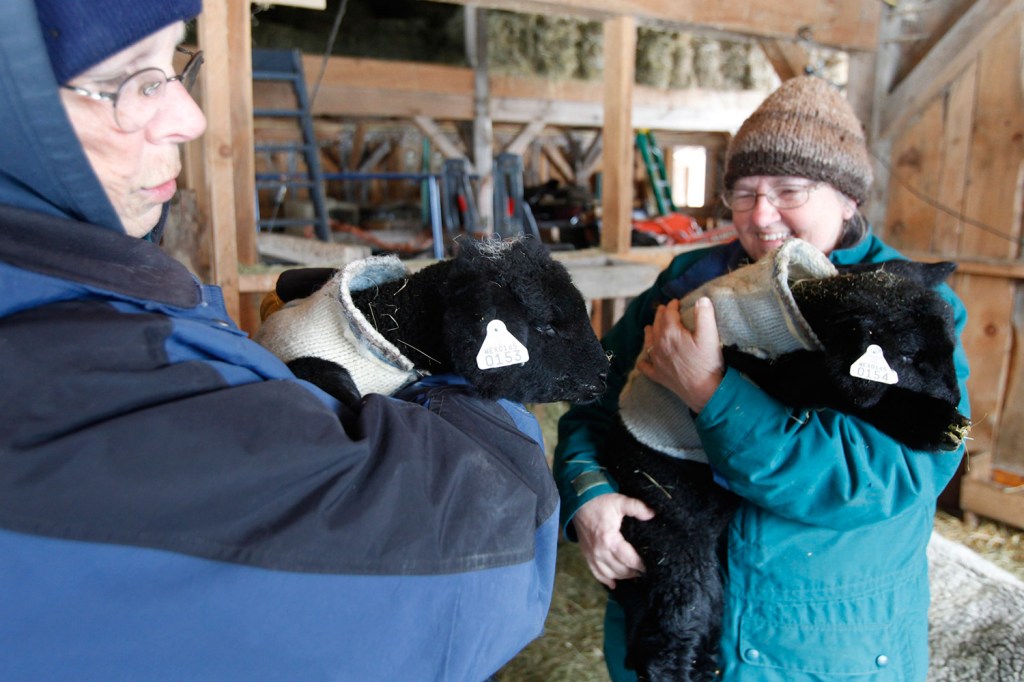
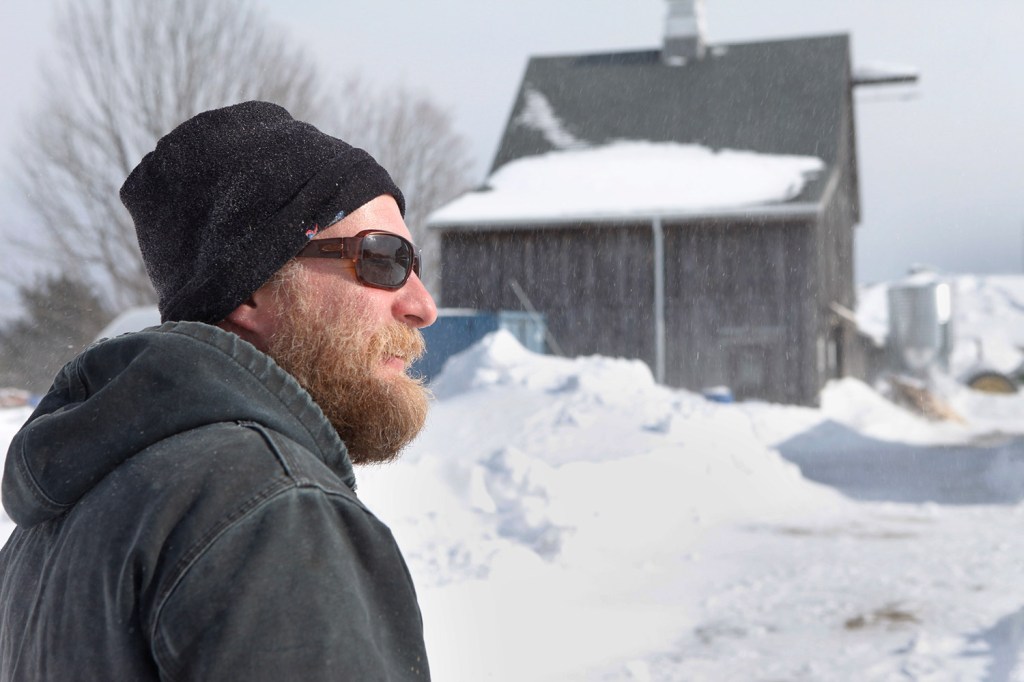
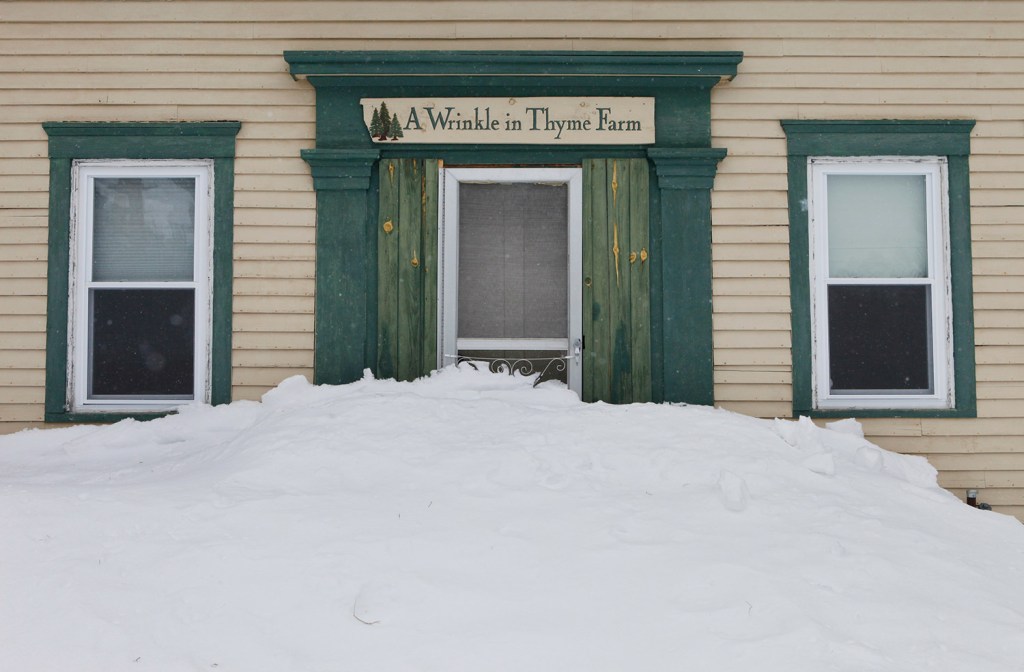
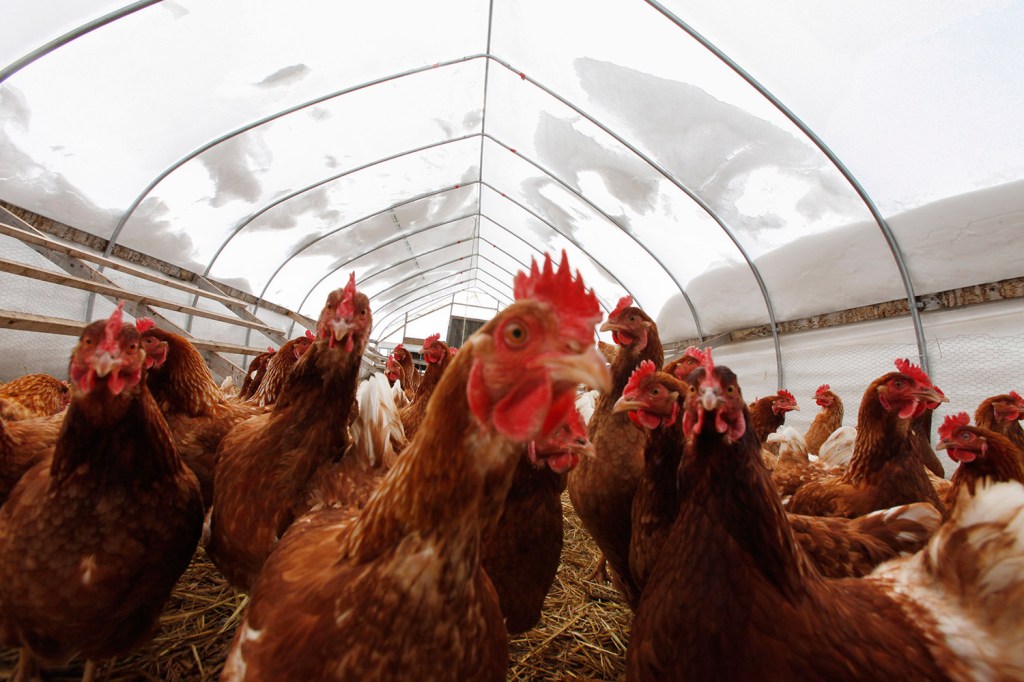
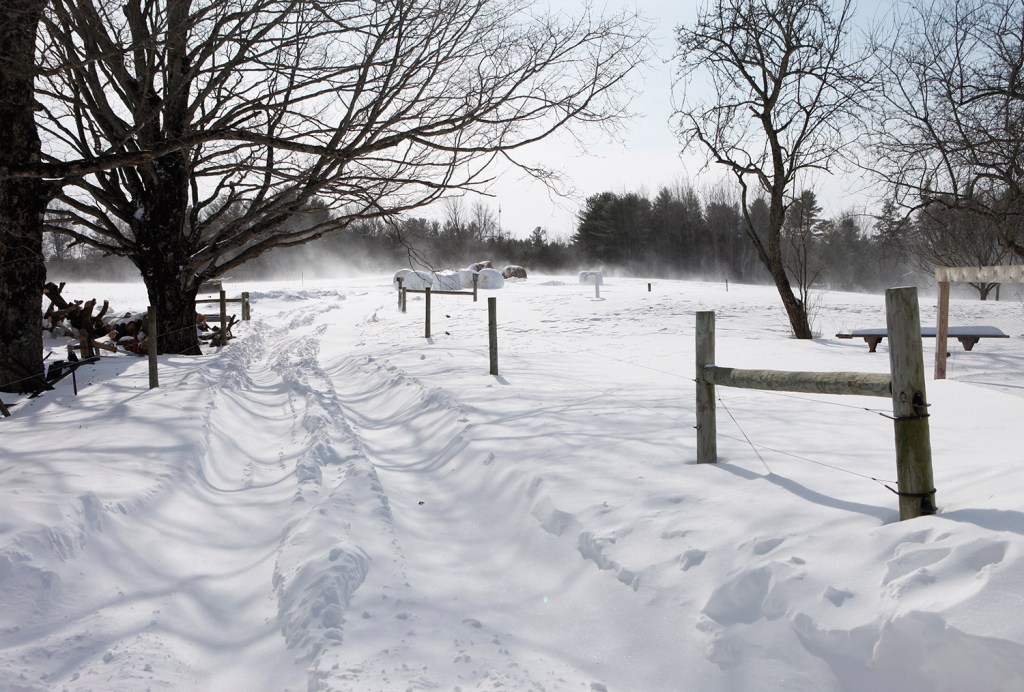
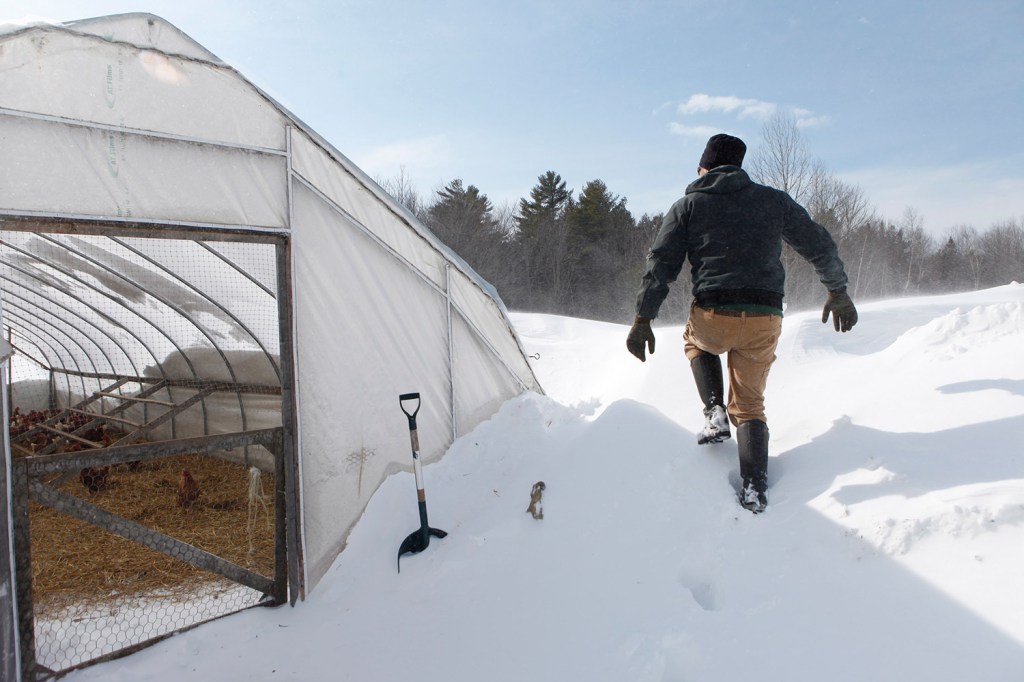
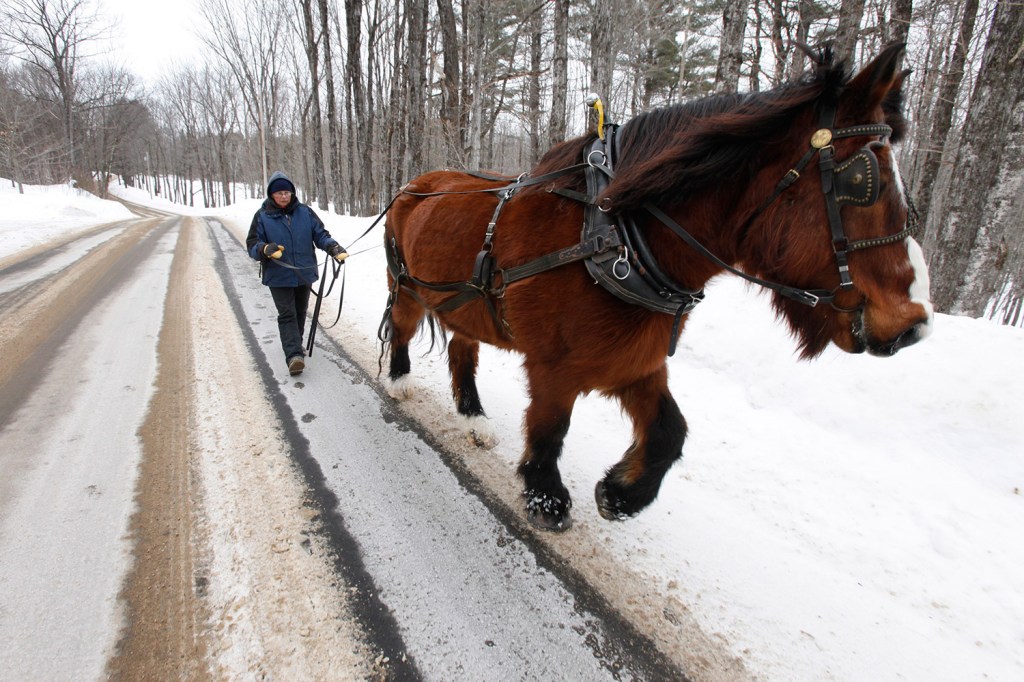
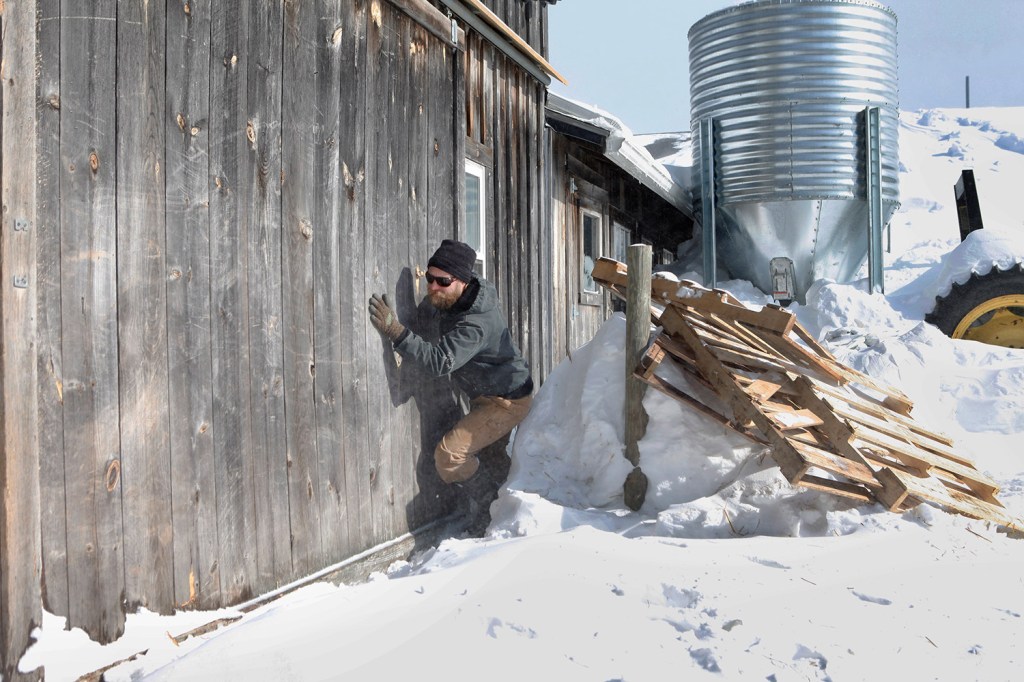
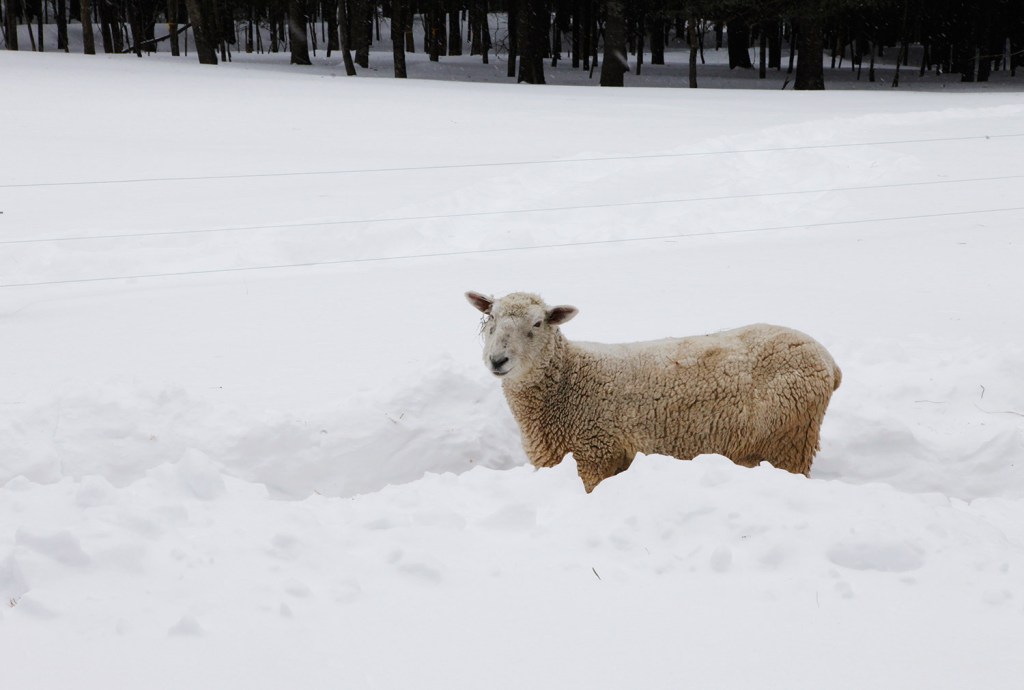

Success. Please wait for the page to reload. If the page does not reload within 5 seconds, please refresh the page.
Enter your email and password to access comments.
Hi, to comment on stories you must . This profile is in addition to your subscription and website login.
Already have a commenting profile? .
Invalid username/password.
Please check your email to confirm and complete your registration.
Only subscribers are eligible to post comments. Please subscribe or login first for digital access. Here’s why.
Use the form below to reset your password. When you've submitted your account email, we will send an email with a reset code.